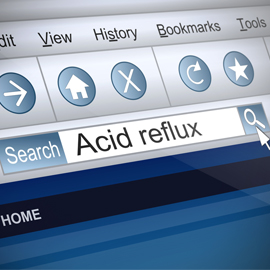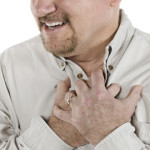
Acid reflux occurs when digestive fluids from the stomach escape into the esophagus. More sensitive than the intestinal lining, esophageal tissue becomes inflamed and irritated when exposed to stomach acid, and the result is often a burning sensation we know as heartburn. But is this acid reflux disease?
Most often, acid reflux cannot be attributed to one sole cause. There are a multitude of factors that can influence your risk of developing acid reflux in any moment. Understanding those causes can help you avoid triggers and prevent reflux from interfering with your quality of life.
Physical Causes of Acid Reflux
Most instances of acid reflux can be related to one of these causes:
- Damaged or dysfunctional lower esophageal sphincter (LES)
- Hiatal hernia
- Excess stomach acid
The LES is the valve that separates the stomach from the esophagus. It opens to allow swallowed food into the stomach, and then shuts to prevent stomach contents from escaping back into the esophagus. If damaged, the LES may not close properly. This will permit acid to flow out of the stomach and into the esophagus causing the pain usually associated with heartburn.
The LES may become damaged as a result of excess pressure on the stomach, often due to:
- Obesity
- Overeating
- Pregnancy
In addition to these factors, heavy lifting or straining can cause damage to the diaphragm, leading to a hiatal hernia. This develops when weakness to the diaphragm allows the stomach to shift upwards into the esophagus. This moves the LES, giving stomach acid open flow into the esophagus.
Environmental Causes of Reflux
Certain lifestyle habits and environmental factors will increase your risk of developing a physical abnormality that can lead to reflux disease.
For example, alcohol, tobacco and certain foods can relax the LES, causing it to move slower or to not shut efficiently, allowing acid to escape into the esophagus. These foods are often referred to as acid reflux triggers, and they include items like:
- Citrus
- Tomatoes
- Chocolate
- Carbonated beverages
- Coffee
- Mint
- Garlic
- Onion
- Spicy foods
Eating highly acidic foods increases the level of acid in your stomach, and will often cause further irritation to the esophagus. Fatty foods, especially fried foods, are also highly associated with acid reflux.
In addition to what you eat, how much and when you eat may influence your risk of developing acid reflux. Overeating, eating too close to bedtime or bending over after eating can put undue pressure on the LES, causing it to fail. Taking muscle relaxers can also cause the LES to dysfunction, causing heartburn to develop.
Many people experience occasional heartburn and acid reflux. The exact cause of your acid reflux can be determined through a series of diagnostic tests. When heartburn develops more than two times per week, it may indicate gastroesophageal reflux disease (GERD).



